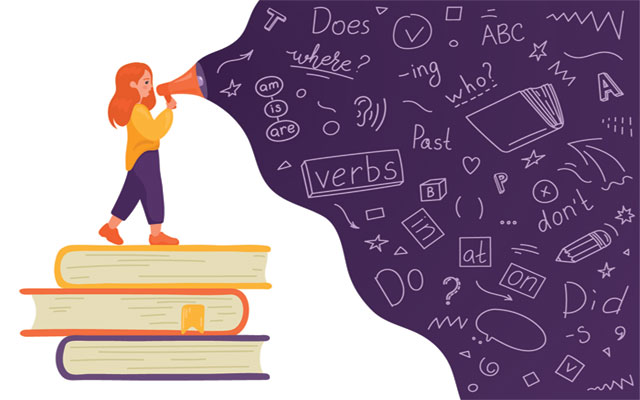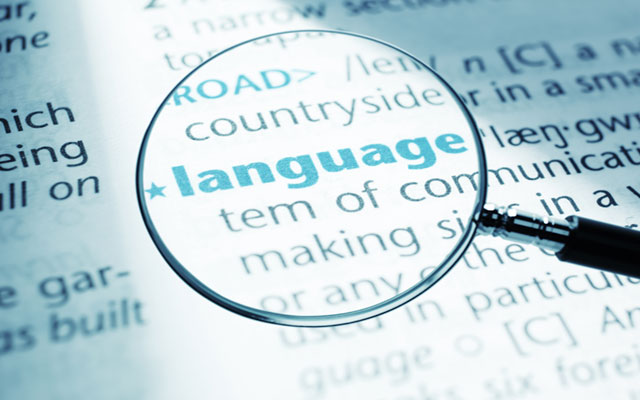Online Class: Building Children's Reading Skills

-
12Lessons
-
14Exams &
Assignments -
5Hours
average time -
0.5CEUs
-
Video Audit
Available
Course Description
Course Description: Mastering Reading Development and Enhancement
Reading is a cornerstone skill, influencing nearly every aspect of an individual's personal, academic, and professional life. From understanding basic text messages to deciphering complex academic papers or enjoying literary classics, reading is an indispensable tool for comprehension, communication, and cognitive development. This comprehensive course delves into the intricate nuances of reading development, catering to a wide spectrum of learners, from children to adults. It offers a holistic insight into reading skills enhancement, rooted in the latest research and pedagogical methods.
Why This Course Matters
Contemporary studies underscore the paramount importance of proficient reading skills. For children, strong reading abilities lay the foundation for academic success and cognitive growth. For adults, it boosts professional opportunities, augments cognitive abilities, and even offers therapeutic benefits like stress reduction. However, achieving fluency and comprehension isn't a one-size-fits-all journey. Different age groups have varying needs, challenges, and potentials when it comes to reading.
This course is meticulously designed to elucidate the science and art of reading development across various age brackets. Participants will glean a robust understanding of how reading abilities evolve from early childhood to adulthood. Furthermore, you will gain actionable strategies to nurture and enhance these skills, tailored to specific developmental stages.
What This Course Offers
-
Foundational Knowledge: Dive deep into the pivotal principles of reading development. Understand the milestones, challenges, and opportunities that characterize the reading journey across different life stages.
-
Hands-On Strategies: We equip you with proven strategies to amplify reading skills across the major components of reading instruction. These methods are both innovative and rooted in time-tested practices, ensuring versatility and efficacy.
-
Resourceful Exploration: We don't just confine learning to our curated curriculum. We also guide you to valuable external resources, including websites and repositories, empowering you to further expand and enrich your knowledge.
-
Applicability: Learn to seamlessly integrate your newfound knowledge into real-life scenarios. Whether you're a parent keen on elevating your child's reading journey, an educator aiming to impact more lives, or an adult seeking personal enhancement, this course offers actionable insights tailored for you.
Key Learning Objectives:
-
Valuing Reading Skills: Recognize the myriad benefits and the profound impact of proficient reading abilities on an individual's academic, professional, and personal life.
-
Decoding Reading Instruction: Unveil the core components of reading instruction. Understand its multifaceted nature, encompassing phonetics, comprehension, vocabulary, and more.
-
Strategic Enhancement: Master techniques and methods designed to fortify each component of reading. Whether it's enhancing phonetic recognition in kids or boosting comprehension in adults, get hands-on tactics for tangible results.
-
Practical Application: This isn't just theoretical knowledge. We emphasize real-world applicability, enabling participants to implement their learning in diverse scenarios. Be it aiding a child's reading journey or honing one's own skills, the course arms you with the expertise to make a tangible difference.
Conclusion
In the ever-evolving landscape of education and personal development, reading remains a steadfast pillar. As Nelson Mandela once said, "Education is the most powerful weapon which you can use to change the world." At the heart of education lies the ability to read and comprehend. Through this course, we aspire to amplify that power for every participant, ensuring that reading becomes not just a skill but a cherished journey. Join us in this enlightening endeavor, and witness the transformative power of proficient reading firsthand.
Course Motivation
One of the most basic life skills is being literate. Literacy is most often defined as the ability to read. While this is the most basic level of being literate, there is debate as to what level one must be able to read in order to be a literate member of society. Typically, it has become an agreed upon recommendation that in order to be considered a literate part of the general society one must be able to read at about the fifth grade level.
With such a low reading level necessary to be considered functionally literate, one would wonder why schooling continues for so many years beyond that fifth grade level. This area is where the definition of literacy becomes more muddled and important all at the same time. A broader definition of literacy includes the ability to acquire new knowledge, possess education and also demonstrating the ability to read and write with some proficiency.
Society has been said to have moved into a new age, an age of technology. Many of the careers, information, and necessary skills needed to live, work, and play today were not readily available in previous decades. It was not taught in schools. Yet, we do not have an entire country of illiterate people. Generations have put to work their own skills to become literate members of present day society. It is this aspect of literacy that is most important when considering the development of reading skills.
It is not the level at which a person can read that should or does determine their literacy today. It is the broader definition that moves people forward, or holds them back. While reading level alone is an important aspect to consider, it is not the only aspect that needs to be accounted for when determining the future success of today's students.
Reading is undeniably one of the most important skills to be learned by members of society. Reading ability opens doors to any place, situation, and opportunity. It is a skill that is required for almost all other tasks. As literate adults, many people take for granted the ability to read and do not realize its true importance in society. From road signs to medical directions, there are limitless examples of places well beyond books, magazines, and newspapers where it is necessary to be able to read.
Illiteracy limits the ability of individuals to interact in society. They may be unable to look at a menu and order food. Illiterate individuals may be unable to acquire the driver's license necessary to drive them to a job that will support them and their family. The restrictions again are too many to describe. However, the most important limitation is that of the limits themselves.
It is not what the individuals are unable to do when they are illiterate that needs to be considered. Instead it is the limit itself: the inability to develop, grow, and change. Information, the key to all change and development, is in effect, removed from the illiterate. Without the ability to access and gather information, so many limits are placed on individuals that it is almost impossible to develop into a successful, progressive, functioning member of society.
Additionally, children who come from illiterate households are more likely to be illiterate adults themselves. This aspect alone seems to doom future generations to continuing in this limiting fashion. Without literacy, education is significantly impeded. The family itself is the cornerstone for success. The family is the single most influencing factor in the lives and development of children. Many programs across the world have realized these significant factors and instituted family literacy programs.
Family literacy programs are developed to use the bond and strength of the family to increase the language, reading, and writing skills of all family members. They are not designed to simply encourage children to become literate; instead, they target all generations within a household. Family literacy came to the forefront in the early 1980s with a call from the government for higher academic standards and expectations.
Family literacy campaigns and programs have been researched throughout the years. The information gathered indicates that such programs not only benefit the children in such things as academic ability, attendance, and future work success, they also have been shown to benefit the parents or other older generations within the home.
Adults typically benefit from family literacy programs by increasing their work skills, language skills, educational opportunities, and parenting skills. The adults involved in such programs are more likely to maintain employment and gain promotions or better job opportunities. They also gain insight into the value of being literate and including literacy activities within the home.
Adults who are functionally illiterate spend a great deal of time and energy trying to cover up the fact that they are indeed illiterate. Numerous adults live their lives without being able to really read information around them. They utilize people around them or find loopholes to help them on a daily basis. While this is certainly a strategy which many have found daily success, it is not a strategy which provides independence and success throughout life. Accidents, unintentional events, and limits for these individuals add up to a constant worry of embarrassment. Individuals in this situation report feelings of embarrassment, shame, fear, and disgrace in addition to others.
Rates of illiteracy seem to go hand in hand with other factors such as poverty, regional settings and familial literacy skills, among other things. As society continues to change, so does the literacy rate and the expectations for being considered literate. Beginning perhaps, with one making his mark or signing his name in order to be considered literate, to being able to read, write, and speak, the requirements of being truly literate continue to change.
Literacy has also come to be used to represent a subset of skills which may be connected to reading or may not. In the math arena, numerical literacy is used to describe a basic understanding of numbers and their values. Computer literacy is often used to describe a person's success at utilizing a computer to complete specific tasks (word processing, surfing the Internet, working e-mail, etc.).
In the end it is not which specific definition that is utilized to describe a literate individual. Instead, it is the concept of being able to gather the necessary information to be a productive, successful member of society, which is without a doubt the goal of all members of the community. It is only with success that one can truly be considered literate, and success can only be defined by yourself, not by outsiders.
Course Lessons
Lesson 1: The Importance of Reading Skills in Society
The student will be able to describe the importance and need for appropriate reading skills in current society.Lesson 2: The Preschool Years
The student will be able to examine the necessary reading experiences and purposes of reading for students from birth through age 5.Lesson 3: Elementary School Years
The student will be able to examine the necessary reading experiences, skills, and purposes for reading for students ages 5 through 12.Lesson 4: Middle Years Through Adulthood
The student will be able to examine the necessary reading experiences, skills, and purposes for reading for students ages 12 through adulthood.Lesson 5: The Big Five Areas of Reading Development
The student will be able to identify, define, and describe the five critical areas in all reading instruction and development.Lesson 6: Phonemic and Phonological Awareness
The student will be able to identify, define, and describe what is necessary in the development of phonemic and phonological awareness.Lesson 7: Phonics
The student will be able to identify, define, and describe what is necessary in the development of student's phonics skills.Lesson 8: Vocabulary
The student will be able to identify, define, and describe what is necessary in the development of a student's vocabulary skills.Lesson 9: Reading Fluency
The student will be able to identify, define, and describe what is necessary in the development of student's fluency skills.Lesson 10: Comprehension
The student will be able to identify, define, and describe what is necessary in the development of a student's comprehension skills.Lesson 11: Readers Who Are Struggling or May Be Learning-Disabled
The student will be able to identify, define, and describe what may be indications a student requires additional interventions with his or her reading development.Lesson 12: Life-Long Learning
The student will be able to integrate previous instruction in the development of reading skills to develop strategies and activities which will encourage life-long reading in students.
Learning Outcomes
- Describe the importance of reading skills in society.
- Describe the methods and curriculum used to build children's reading skills in the preschool years, the elementary school years, and the middle school years through adulthood.
- Summarize the big five areas of reading development.
- Describe phonemic and phonological awareness.
- Outline the processes involved in building phonics, vocabulary, reading fluency, and reading comprehension.
- Evaluate readers who are struggling or may be learning disabled and apply appropriate techniques.
- Demonstrate mastery of lesson content at levels of 70% or higher.
Additional Course Information

- Document Your Lifelong Learning Achievements
- Earn an Official Certificate Documenting Course Hours and CEUs
- Verify Your Certificate with a Unique Serial Number Online
- View and Share Your Certificate Online or Download/Print as PDF
- Display Your Certificate on Your Resume and Promote Your Achievements Using Social Media

Student Testimonials
- "This course was challenging, thought-provoking, and rewarding. It was indeed helpful. I cannot think of anything else that should be included." -- Judy M.
- "I am absolutely delighted with this class. I am hoping to begin working with adults in helping them to build literacy skills and I think this class was the perfect preliminary work to do it successfully." -- Sandra B.
- "Thank you! I really enjoyed the course will be taking the Reading Comprehension 101." -- Latonya B.
- "Great course. Would recommend it." -- Dee T.
- "I really enjoyed taking this course and will certainly think about doing another one in the future." -- Margaret Joan G.
- "It was all very helpful." -- Jody H.
- "You were very prompt at correcting my work, I was completing this class in a hurry and I greatly appreciated the promptness." -- Jill L.
- "I really appreciated that important words were underlined, and that the text on all the lessons were streamlined." -- Jill L.
- "I found the content and resources extremely useful. I also felt that the instructor was very responsive to my submissions. This course is one of best I have ever taken, in any venue. I again want to commend the instructor for this course." -- Sallie J.
- "The lessons were very well written and the assignments and tests captured the essence of the material." -- Cynthia T.
Related Courses
-
 8 hours
0.8 CEUs
Stages of Childhood Development
+ More Info
8 hours
0.8 CEUs
Stages of Childhood Development
+ More Info
-
 11 hours
1.1 CEUs
Punctuation and Grammar 101
+ More Info
11 hours
1.1 CEUs
Punctuation and Grammar 101
+ More Info
-
 15 hours
1.5 CEUs
Western Calligraphy
+ More Info
15 hours
1.5 CEUs
Western Calligraphy
+ More Info
-
 7 hours
0.7 CEUs
Basic English Speaking Skills
+ More Info
7 hours
0.7 CEUs
Basic English Speaking Skills
+ More Info
-
 9 hours
0.9 CEUs
Reading Comprehension 101
+ More Info
9 hours
0.9 CEUs
Reading Comprehension 101
+ More Info
-
 5 hours
0.5 CEUs
Positive Parenting Techniques
+ More Info
5 hours
0.5 CEUs
Positive Parenting Techniques
+ More Info
-
 7 hours
0.7 CEUs
Personality Development
+ More Info
7 hours
0.7 CEUs
Personality Development
+ More Info
-
 11 hours
1.1 CEUs
English Grammar Level 1
+ More Info
11 hours
1.1 CEUs
English Grammar Level 1
+ More Info
-
 5 hours
0.5 CEUs
Basic Parenting Skills
+ More Info
5 hours
0.5 CEUs
Basic Parenting Skills
+ More Info
-
 10 hours
1.0 CEUs
Learning Disabilities: What You Need to Know
+ More Info
10 hours
1.0 CEUs
Learning Disabilities: What You Need to Know
+ More Info
-
 7 hours
0.7 CEUs
Introduction to Child Psychology
+ More Info
7 hours
0.7 CEUs
Introduction to Child Psychology
+ More Info
-
 9 hours
0.9 CEUs
Watercolor Painting 101
+ More Info
9 hours
0.9 CEUs
Watercolor Painting 101
+ More Info
-
 7 hours
0.7 CEUs
Spelling 101
+ More Info
7 hours
0.7 CEUs
Spelling 101
+ More Info
-
 8 hours
0.8 CEUs
Teaching Grammar to ESL Students
+ More Info
8 hours
0.8 CEUs
Teaching Grammar to ESL Students
+ More Info
-
 11 hours
1.1 CEUs
English Composition 101
+ More Info
11 hours
1.1 CEUs
English Composition 101
+ More Info
-
 3 hours
0.3 CEUs
Understanding Childhood Obesity
+ More Info
3 hours
0.3 CEUs
Understanding Childhood Obesity
+ More Info
-
 7 hours
0.7 CEUs
Speed Reading 101
+ More Info
7 hours
0.7 CEUs
Speed Reading 101
+ More Info
-
 14 hours
1.4 CEUs
Acrylic Painting 101
+ More Info
14 hours
1.4 CEUs
Acrylic Painting 101
+ More Info
-
 11 hours
1.1 CEUs
How to Write a Short Story
+ More Info
11 hours
1.1 CEUs
How to Write a Short Story
+ More Info
-
 5 hours
0.5 CEUs
Basic Research Skills
+ More Info
5 hours
0.5 CEUs
Basic Research Skills
+ More Info
-
 11 hours
1.1 CEUs
Journaling and Memoir Writing
+ More Info
11 hours
1.1 CEUs
Journaling and Memoir Writing
+ More Info
-
 8 hours
0.8 CEUs
Understanding Behavior Management Techniques
+ More Info
8 hours
0.8 CEUs
Understanding Behavior Management Techniques
+ More Info
-
 5 hours
0.5 CEUs
Vocabulary Level 3
+ More Info
5 hours
0.5 CEUs
Vocabulary Level 3
+ More Info
-
 17 hours
1.7 CEUs
Mixed Media Art
+ More Info
17 hours
1.7 CEUs
Mixed Media Art
+ More Info
-
 7 hours
0.7 CEUs
Personal Communication Skills Level 2
+ More Info
7 hours
0.7 CEUs
Personal Communication Skills Level 2
+ More Info
-
 22 hours
2.2 CEUs
ABCs of Algebra
+ More Info
22 hours
2.2 CEUs
ABCs of Algebra
+ More Info
-
 6 hours
0.6 CEUs
How To Coach Youth Basketball
+ More Info
6 hours
0.6 CEUs
How To Coach Youth Basketball
+ More Info
-
 3 hours
0.3 CEUs
Single Parenting
+ More Info
3 hours
0.3 CEUs
Single Parenting
+ More Info
-
 5 hours
0.5 CEUs
Home Safety
+ More Info
5 hours
0.5 CEUs
Home Safety
+ More Info
-
 7 hours
0.7 CEUs
Solving Classroom Discipline Problems
+ More Info
7 hours
0.7 CEUs
Solving Classroom Discipline Problems
+ More Info
-
 10 hours
1.0 CEUs
Autism 101
+ More Info
10 hours
1.0 CEUs
Autism 101
+ More Info
-
 5 hours
0.5 CEUs
Vocabulary Level 2
+ More Info
5 hours
0.5 CEUs
Vocabulary Level 2
+ More Info
-
 7 hours
0.7 CEUs
Attention Deficit Disorders: ADD and ADHD
+ More Info
7 hours
0.7 CEUs
Attention Deficit Disorders: ADD and ADHD
+ More Info
-
 3 hours
0.3 CEUs
Problem Solving Strategies
+ More Info
3 hours
0.3 CEUs
Problem Solving Strategies
+ More Info









